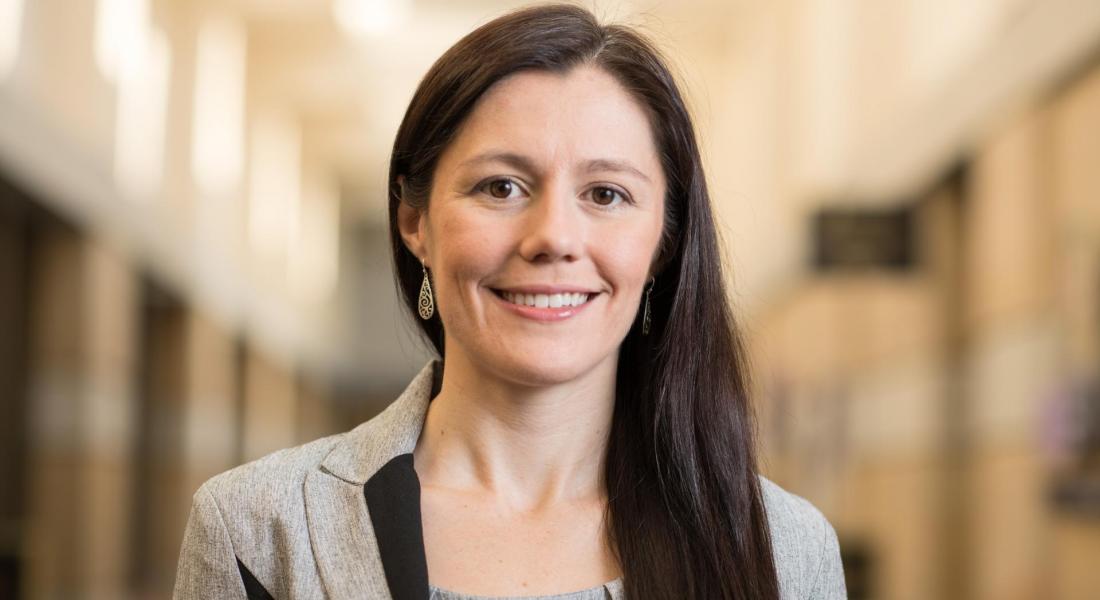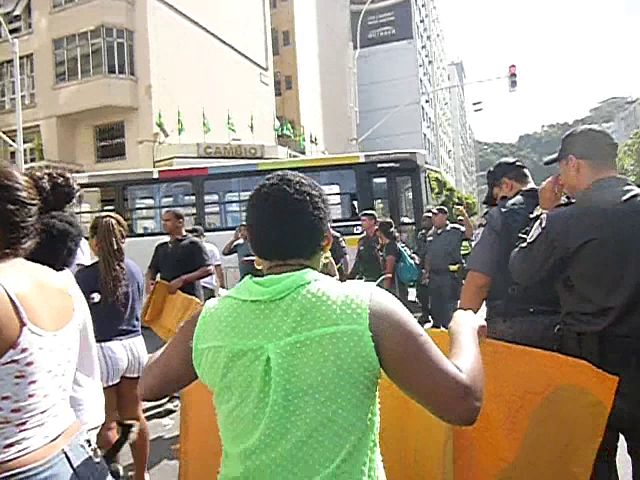
PhD Fellow Stefanie Israel de Souza (sociology), who is also a 2017–18 Kellogg Dissertation Year Fellow, has been awarded a $20,000 Harry Frank Guggenheim Foundation Dissertation Fellowship. She is one of just ten students from across the country to win the prestigious award, which supports PhD candidates in their final year of dissertation completion.
The Guggenheim Foundation focuses its funding on the study of violence and aggression in relation to issues such as social change, intergroup conflict, war, terrorism, crime, and family relationships.
That’s a perfect fit for Israel de Souza, whose dissertation investigates police reform and violence in the favelas of Rio de Janeiro in the context of mega events like the Olympic Games. She calls the fellowship “a great honor.”
“It is encouraging to know that a foundation that exclusively supports research on violence believes that my work has something important to contribute,” she says. “On a practical level, after years of fieldwork, I am thankful to have the combined support of Guggenheim and Kellogg to complete my dissertation writing.”
Previously, she received SSRC and Fulbright grants as well as a USAID-Notre Dame Global Development Fellowship and a Kellogg Graduate Research Grant for the field research upon which the dissertation is based.
 Between 2012 and 2017, Israel de Souza conducted 24 months of ethnographic fieldwork in two Rio favelas, studying the effects of “pacification,” a proximity policing program intended to undermine the domination of drug dealers and reduce police violence in the lead up to the 2014 World Cup and the 2016 Summer Olympics.
Between 2012 and 2017, Israel de Souza conducted 24 months of ethnographic fieldwork in two Rio favelas, studying the effects of “pacification,” a proximity policing program intended to undermine the domination of drug dealers and reduce police violence in the lead up to the 2014 World Cup and the 2016 Summer Olympics.
“It is very difficult to know what is actually going on in these communities from the outside,” she says. During her time in the field, she observed rapidly shifting community relations among residents, police, and drug dealers, as the mega-events came and went amidst protests and election cycles, and as relative peace gave way to violent territorial disputes and frequent shootings.
“In the early years, this initiative was seen by the World Bank and others as a successful policing program worthy of emulation in criminal-dominated urban peripheries throughout the Global South,” she explains. By 2016 it had failed, with the neighborhoods reverting to violence and instability.
Faculty Fellow Ann Mische (sociology and peace studies), who with Faculty Fellow Lyn Spillman (sociology) serves on Israel de Souza’s dissertation committee, calls her work “compelling and original,” with the potential to make significant contributions to both scholarship and policy.
“Stefanie has a depth of understanding of community relations, police interventions, and trajectories of violence that are matched by few researchers,” Mische says.
“Her capacity for warm but understated presence and her strong local ties enabled this research, giving her access as well as insight that could not have been achieved by a researcher who ‘dropped in’ to these communities.”
In the dissertation, Israel de Souza is exploring the reasons she perceives for the failure of the pacification program, including the connections of drug gangs between and beyond favelas, the shifting nature of police corruption, and the futility of a “permanent” strategy based around mega-events.
Her findings will contribute to the growing concern about the effects of mega-events on host cities, especially in the developing world.
“Temporary public security interventions can have disastrous consequences for marginalized communities even when carried out under the guise of promoting human rights and reducing police violence,” she says.
The Kellogg Institute for International Studies, part of the University of Notre Dame’s new Keough School of Global Affairs, is an interdisciplinary community of scholars and students from across the University and around the world that promotes research, provides educational opportunities, and builds linkages related to two topics critical to our world—democracy and human development.





